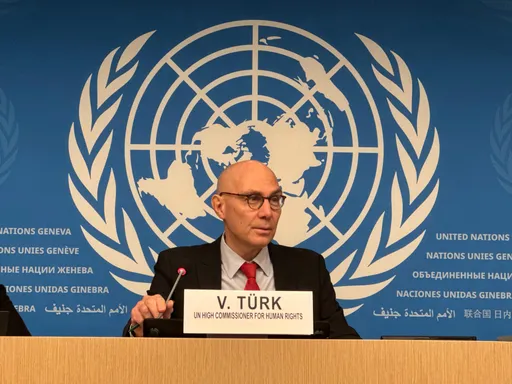On March 1, a leaked letter was revealed where Moroccan Foreign Minister Nasser Bourita advised that all government offices end relations with the German embassy in the capital Rabat, alongside other German political and cultural organisations.
This came in spite of considerable ties between the two countries. In December 2020, Morocco received $1.57 billion in financial support from Germany, earmarked for bank loans for entrepreneurs, fiscal reform, Covid-19 aid and renewable energy investments.
The discord between the two countries is rooted in substantial disagreements and differences.
Here are the top 5 reasons behind Morocco’s move.
1. Western Sahara
Control of the Western Sahara is one of Morocco’s top foreign policy priorities. In December 2020, former US President Donald Trump recognised Morocco’s sovereignty over the disputed Western Sahara after it normalised ties with Israel.
The EU pushed back on the declaration, citing a previous UN resolution affirming the Western Saharan right to self-determination. Germany led this charge from the EU to the UN, by calling a closed-door UN Security Council meeting, and requesting the US to “act within the framework of international law.”
This tension was exacerbated recently when a German parliament in its state of Bremen raised the flag of the Sahrawi Arab Democratic Republic, the Western Saharan independence movement's self-declared territory. On the parliament’s Facebook page, parliamentarians said they raised the flag to recognise 45 years since the Western Saharan Republic was founded.
For Morocco, these actions came as a surprise at a time when it simply wanted Germany’s recognition of Trump’s measures.
This is not the first time Morocco has taken severe diplomatic measures over the Western Sahara. In 2018, Morocco suspended diplomatic relations with Iran in response to their support for the Polisario Front, an independence movement that holds substantial territory in the Western Sahara. It also expelled at least 70 UN staff members from the country in 2016, after former Secretary General Ban Ki-Moon called Morocco’s control of the Western Sahara “an occupation”.
2. Provocations
A recent report by Transparency International, based in Berlin, also upset the Moroccan government. Released in February 2021, the report states that Morocco has "a severe and systemic level of corruption" only made worse by the ongoing coronavirus pandemic. The report was aired on German TV, where it also cited human rights abuses in Morocco.
The statements were seen as provocative, fuelled by a “biased pro-separatist” stance on the disputed Western Sahara.
3. Resources
Morocco is the EU’s largest trading partner. In spite of its stance, the EU does not limit EU companies from doing business in the phosphate and energy-rich Western Sahara.
A European Court of Justice decision in December 2016 ruled that the EU did not have to abide by its trade deals with Morocco in the Western Sahara, for the reason that their consent was not obtained.
Conveniently, a European Parliament fact-finding mission was sent to ‘consult’ with Sahrawi groups, after which the EU was able to exploit the Western Sahara’s resources while not recognising Morocco’s sovereignty over the region, and ignoring outstanding trade deals.
Siemens AG, a large German manufacturer is heavily invested in “Southern Morocco”, or rather, the Western Sahara’s renewable energy industry.
The same legal pretext is used by the EU to circumvent a bilateral fisheries agreement, which the EU Court of Justice deems inapplicable to fishing off the coast of the Western Sahara.
4. Diplomatic disagreement
A senior diplomat speculated that one of the many reasons Morocco was cutting diplomatic ties with Germany had to do with not receiving an invitation to the Berlin Conference hosted by Germany on the situation in Libya a year earlier.
The high-level summit saw heads of states from most countries around the world invited to Berlin, including European Union representatives, Arab League members and African Union leaders.
To Morocco’s foreign ministry, this was strange given Morocco’s role in ending the Libyan conflict. The Foreign Ministry also took issue with the fact that Algeria was invited to the high-level talks, a supporter of the Polisario Front independence movement, while Morocco wasn't. In recent years, Morocco has played a direct role in negotiations between warring parties and bringing rival parliaments together for talks.
A recent contention also involves Germany’s bid to replace the French permanent seat on the UN security council with an “EU” veto-capable seat. The proposal was rejected outright in 2018, when it was proposed. France is a staunch supporter of Morocco on the Western Sahara issue, while Moroccan foreign policy makers are concerned this could further push EU and UN support away from Morocco.
5. Alleged Espionage
Mohammed Hajib, is a Moroccan-German activist who spent 7 years in a Moroccan jail. A UN group specializing in arbitrary detention reported that Hajib was arrested on the basis of a false confession obtained through torture.
After his release in February 2017, he returned to Germany where he has since become a vocal critic of the Kingdom and its security apparatus. Morocco issued an international warrant calling for his arrest, which was cancelled by Interpol. Hajib is described as a foreign agent by Morocco’s security services, and one who traveled to the Western Sahara multiple times under suspicious circumstances.
Morocco has previously rejected a proposal to set up EU migrant centers set up in North Africa, on the grounds that it violated its own migrant policy. Morocco’s Foreign Minister also critiqued the EU for not treating Morocco as an equal partner in its own right, considering its efforts on migration and counter-terrorism.























